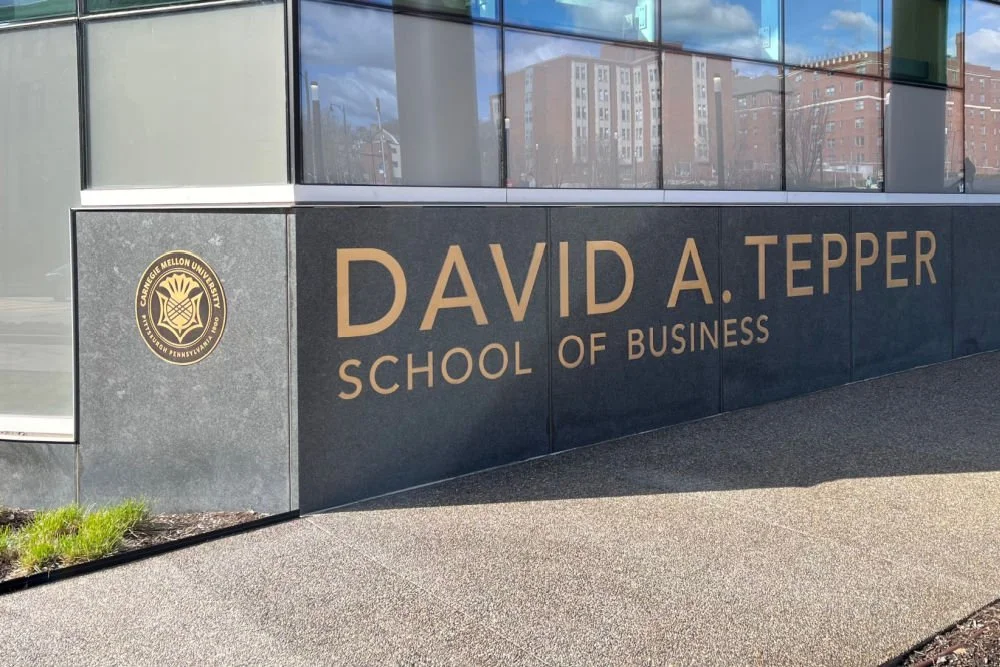In Solidarity: Here Are the Top Funders Supporting Labor and Workers' Rights
/Dan Holm/shutterstock
It isn’t hard to see why philanthropy’s record on workers’ rights and labor policy is so mixed. Given the choice between supporting work in a highly politicized field that raises tough questions about inequality and corporate power—or just giving money to another workforce development initiative—most funders find the latter option easier to stomach.
The few who do fund worker advocacy have a steep hill to climb. In addition to the hollowing out of traditional unions, long-term economic shifts have tilted power heavily in favor of the owners of capital, leaving labor with reduced leverage. The have-nots vie for low-skill jobs that may be plentiful—for now—but offer little in the way of security or advancement. Half of all jobs in the U.S. pay under $18 an hour and millions of workers make less than $10 an hour. Globalization is one factor here, along with automation, the rise of the gig economy, and ruthless cost-cutting by public companies in the face of shareholder pressures. Women, people of color and immigrants are most likely to work the worst jobs. But in the wake of the 2016 election, there’s also been a new appreciation of the diminished opportunities for workers in white rural areas.
Despite the magnitude of those challenges, a select group of funders has responded with grants to empower workers and try to score gains for labor rights in an often unfavorable policy landscape. In lieu of union dues, a constellation of ground-level worker advocacy organizations and a few labor-friendly think tanks rely on these funders for critical support. Against long odds, these groups, which work closely with activist unions like the SEIU as part of what’s often called the “new labor movement,” have made notable strides in recent years.
The campaign for a $15 minimum wage, the “Fight for Fifteen,” has scored major victories at both the state and local levels—including wins in New York and California. Advocates have also succeeded in changing the conversation—and changing policy in some places—on another major priority: paid family and sick leave.
While worker organizing has been the main key to these gains, philanthropy has played an important role in re-energizing efforts to create a fairer U.S. economy. Here are some of the biggest grantmakers in a space that we’ve been watching closely in recent years.
Ford Foundation
This list isn’t ranked in a particular order, but the scale of Ford’s recent support for worker advocacy and fair labor policies earns it a top spot. Among today’s leading organizations supporting a new labor movement, few have not received Ford money as this progressive stalwart wages a wide-ranging campaign to tackle inequality “in all its forms.” Like many of the funders listed below, Ford isn’t afraid to give to groups that regularly align themselves against major employers, including the National Domestic Workers Alliance (NDWA), the Restaurant Opportunities Center (ROC), and the National Employment Law Project (NELP).
Along with other Ford grantees like the Jobs with Justice Education Fund, the Partnership for Working Families, and the National Day Laborer Organizing Network, these groups have emerged as key players in an organizing environment where traditional unions are just one element. Ford also supports labor-friendly think tanks like the Economic Policy Institute and the Center on Budget and Policy Priorities.
Open Society Foundations
Labor issues and workers’ rights may not be the first issue that comes to mind when we think of the Open Society Foundations, but over the past several years, OSF has backed many of the same new labor movement grantees as Ford. That includes outfits like ROC, NELP and NDWA, as well as think tanks like the Economic Policy Institute. Memorably, staff at OSF themselves voted to join a union several years back, an unusual move, to be sure. As we reported at the time, that decision highlighted white-collar workers’ desire to have a greater voice in organizational decisions. That’s a decidedly different motivation than wages or benefits, but a reminder nonetheless that whatever an organization’s politics, nonprofit governance can still follow corporate forms.
W.K. Kellogg Foundation
Another key progressive grantmaker, the Kellogg Foundation supports labor movement grantees as part of its commitment to children and working families. ROC has received general support over the years, as well as grants for research to address on-the-job segregation, to expand worker ownership, and to address issues like childcare. Along similar lines, grants have gone out to NDWA to support childcare and caregiving, and to expand the group’s organizing efforts. Kellogg has also been a key funder of farmworker organizing, with grants to groups like the Coalition of Immokalee Workers, the Farmworker Association of Florida, and the Farmworker Justice Fund.
Surdna Foundation
Surdna has been funding labor organizations for a while through its Strong Local Economies program and grants to bolster job quality and benefits. With Ford alumnus Don Chen newly at the helm, that’s unlikely to change. (Note that controversy has bubbled up among Andrus descendants over whether the foundation’s commitments to economic and racial justice are at odds with donor intent.) Surdna’s grantees include ROC, NDWA, and Family Values @ Work. Surdna has also shown interest in worker ownership, including concepts like employee stock ownership plans and worker-run co-ops.
Annie E. Casey Foundation
Over the years, Annie E. Casey has supported many of the labor movement organizations we’ve mentioned above, including ROC, NELP, and Family Values @ Work. As is the case with many of the funders on this list, Annie E. Casey’s current strategy also embraces workforce development, including partnerships with businesses to open up pathways to employment and financial security for low-income families. Policy change is another longtime focus, as the foundation supports places like the Center on Budget and Policy Priorities, the Economic Policy Institute, and the Working Poor Families Project.
NoVo Foundation
Who says colossal capitalist fortunes can’t be channeled in a progressive—even leftist—direction? As part of its focus on the rights and security of women and girls, Jennifer and Peter Buffett’s foundation has funded several hard-hitting labor movement groups. Last year, through its Radical Hope Fund, NoVo disbursed millions of dollars to social justice groups including NDWA. It’s also a backer of ROC, supporting worker organizing in sectors with high proportions of female employees. NoVo’s push against gender-based violence in the global garment industry is another facet of the same strategy.
Nathan Cummings Foundation
Like Ford, Nathan Cummings’ focus on movement building and combating inequality makes workers’ rights and labor activism a good fit. Grantees in this space include NDWA, ROC, the Coalition of Immokalee Workers, the Workers Defense Project and the National Day Laborer Organizing Network. Like many of the funders listed here, Nathan Cummings sees racial, economic and gender justice as intertwined. That intersectionality also extends to climate change, the foundation’s other big focus.
The James Irvine Foundation
Irvine, which focuses its grantmaking in California, shifted its strategy a few years ago to ensuring that all low-income workers in the state “have the power to advance economically.” It has since become an important funder of many of the key national groups in the new labor movement—typically for California-related projects—as well as many local organizations in the state that advocate for workers. Irvine made a three-year, $3.75 million grant to the National Domestic Workers Alliance in 2017, and a $1.4 million grant to the Restaurant Opportunities Center a year earlier—with funds in both cases supporting organizing and policy advocacy by these groups in California. It also made a $3.4 million grant to NELP in 2016.
Public Welfare Foundation
Along with criminal justice, workers’ rights has been a major pillar of the Public Welfare Foundation’s work. Some prominent grantees included the Center for Popular Democracy (to address issues like forced arbitration), EPI and NELP. The foundation also supported farmworkers and migrant laborers through grants to Centro de los Derechos del Migrante and the Coalition of Immokalee Workers. Labor rights-focused journalism was another facet of this funder’s strategy, including grants to In These Times and the Center for Public Integrity. The Public Welfare Foundation also backed Funders for a Just Economy at the Neighborhood Funders Group.
In early 2019, Public Welfare shifted to a new strategic framework encompassing youth and criminal justice only. Workers’ rights will no longer be a focus. The change underscores the difficult choices social justice funders have to make in the face of so many “intractable societal issues,” as the foundation put it. Especially as funders finally achieve some traction on criminal justice, tough issues like workers’ rights may fall by the wayside.
Collaborative and Donor-Advised Funds
It happens on the left just like the right. When donors view a cause as too sensitive or politicized to support publicly, the opacity of DAFs and similar funding vehicles becomes an attractive option. Just as progressives decry the lack of transparency at places like DonorsTrust and the National Christian Foundation, conservatives fret about labor-friendly intermediaries like NEO Philanthropy, Tides and the New Venture Fund. Hard-to-trace donations also make their way to politically sensitive causes, labor included, through bland DAF titans like Fidelity Charitable.
****
This list is hardly exhaustive. Some equity-focused funders we haven’t mentioned support workers’ rights and labor movement organizing here and there. Additional names include Rockefeller, MacArthur, Charles Stewart Mott, Joyce, Bauman, and Marguerite Casey. Funders embracing an expansive view of health are also among that number, including the Robert Wood Johnson Foundation and the California Wellness Foundation. In 2015, for example, RWJF gave a $400,000, one-year grant for the Good Work Code, an initiative launched by NDWA to raise labor standards for caregivers at a moment when the online, on-demand market for home health workers is exploding.
Despite the efforts of the grantmakers above, workers’ rights and labor organizing are still embattled and underfunded causes. Many funders who are committed to an equity agenda do not have a track record of supporting those organizations on the front lines of the growing push to improve pay and benefits for low-income workers. For example, the Ballmer Group has lately emerged as a major backer of nonprofits that seek to lift up poor children and families. So far, though, it hasn’t given notable support to groups addressing what may be the single biggest problem facing Americans at the bottom of the economic ladder: a lack of well-paying jobs with benefits. Two other major newcomers to the equity space, the Gates Foundation and the Chan Zuckerberg Initiative, also haven’t yet emerged as clear allies of worker rights. All three of these philanthropic vehicles are tapping business fortunes amassed by living donors.
Historically, legacy foundations piloted by nonprofit veterans have been far more friendly to labor causes than the philanthropies of living donors who’ve spent their careers on the capital side of the economic power divide. Still, there are hopeful signs that this may be changing as more leaders in the business world worry about the negative political, economic and social effects of income inequality—worries that grew sharply after the 2016 election.
Nick Hanauer, a wealthy entrepreneur and venture capitalist, has been among the most vocal figures issuing such warnings—predicting in a widely read 2014 Politico article that growing inequality was unsustainable and that the “pitchforks are coming… for us plutocrats.” Along with wife Leslie, Hanauer has been a strong supporter of the Fight for Fifteen and other progressive economic causes.
More significantly, the Omidyar Network, which is funded by the eBay billionaire Pierre Omidyar and his wife Pam, has recently moved to prioritize workers rights and labor issues as part of a strategy reboot. We’ll look more closely at that new grantmaking in a future article.
While the odds remain heavily stacked against many American workers, with automation threatening to make the situation worse in the not-so-distant future, there’s no question that labor issues have become a bigger priority for philanthropy in recent years—and for a growing number of politicians, too.
The new labor movement that funders are supporting, which often works closely with other social justice movements, may just have a shot at reviving a strong labor politics for the 21st century.
Related:







































